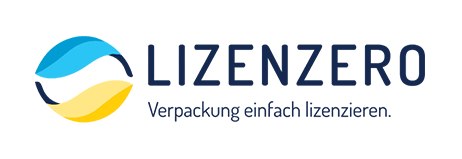Packaging license for small businesses: Send clothes to the customer in compliance with the law

All kinds of goods are sold on the Internet by numerous small, large and international online stores. Customers can purchase all products imaginable and have them convenient-ly shipped to their homes. Among the most popular goods are items of clothing, often including sustainable clothing.
Just as big companies, small stores and solo self-employed people have to take a few things into account to ensure that the shipping of goods is also resource-friendly – there is a need for action, particularly with regard to the German Packaging Act (VerpackG) for small businesses. We have compiled the most important information for you.
Content
- Small business owners and the German Packaging Act: What is a Packaging License?
- What does a packaging license for small businesses cost?
- Overview: legally compliant shipping of goods
- Conclusion – Packaging license for small businesses: Shipping products in a resource-saving way?
For quite some time now, shoppers have not only been using bricks-and-mortar shops, but also increasingly online shops, to buy their products for everyday needs including clothing – whether produced conventionally or sustainably.
Numerous small businesses and even individual entrepreneurs are active in the market for sustainable clothing and fair fashion, often successfully selling their goods on the internet and sending them to the customer by mail order or selling the products in a stationary retail store.
While the distributed goods may often be fairly and sustainably produced, made of organic cotton or even second hand products, the shipping of many companies is definitely still in need of improvement. In addition, suppliers have to comply with the requirements of the German Packaging Act (VerpackG) since January 2019. Within the framework of this law and of the first amendment to the German Packaging Act (in force since July 3 2021), established distributors and those who are new to the market must consider a number of things.
Small business owners and the German Packaging Act: What is a Packaging License?
Solo self-employed and small business owners with few employees must – just like all other companies that put packaging into circulation – pay attention to a number of things when shipping their goods. This includes the packaging license as the packaging materials used must be licensed from the first product shipped.
But when is a packaging licence necessary? According to the German Packaging Act of 2019, all sales packaging that is put into circulation for the first time and is shipped or handed over by a manufacturer – meaning the shipper or distributor – to a private end customer must be licensed.
Sales packaging is considered packaging subject to system participation; this means it must be licensed with a dual system for a fee. The category of sales packaging includes shipping, product and service packaging.
The following important obligations must be fulfilled by the distributors of the sales packaging with regard to the German Packaging Act:
- Duty to register: First of all, businesses must register with the Central Agency Packaging Register (ZSVR) in the publicly accessible LUCID register.
- Duty to participate in a system (also ‘licensing duty’): Subsequently, suppliers must register with a dual system using the registration number they have received from the ZSVR. This can be done quickly and easily, for example, via Lizenzero with the dual system Interseroh+. During registration, the packaging materials to be put in circulation must be estimated and licensed for one calendar year.
- Duty to report data: After the packaging license has been acquired, the licensed packaging volumes must be reported in LUCID together with the name of the dual system. The entered data must always be identical both in LUCID and the dual system.
After licensing, companies do not have to become active again until the end of the year. They then have to submit a volume forecast report for the following year to the dual system and LUCID. Based on this data report, the license agreement is extended and the licensing fees are calculated. At the beginning of the following year companies have to submit the year-end quantity report to their dual system and the Central Agency Packaging Register, stating the exact quantities used in the previous year. Only if a company puts several tonnes of packaging material per year into circulation, they must submit a declaration of completeness.
The licensing fees flow directly into the disposal and recycling processes of the packaging. This means that the dual systems organise the collection and sorting of the packaging materials and the subsequent processing of the recyclable materials. The processed raw materials can then be used for the manufacturing of new products. Packaging licensing thus enables a joint assumption of responsibility with regard to the recycling of the packaging placed on the market. In this way, the circular economy is supported, resources are conserved and a sustainable future is pursued.
In any case, solo self-employed persons and small business owners should check very carefully which obligations they have to comply with. As initial distributors, they are already affected from the first package shipped; violations of the German Packaging Act can result in warnings and severe penalties.
What does a packaging license for small businesses cost?
For small business owners, as for all other producers and traders, the cost of the packaging license depends on the volume of packaging put into circulation and the types of packaging material. All packaging materials must be licensed, the decisive factor is always whether the packaging ultimately ends up as waste for the end consumer. When calculating the individual license fees, the total weight of each packaging material is taken into account.
Retailers can use the Lizenzero calculation assistant to estimate the packaging quantities put into circulation and then calculate their license fee with the Lizenzero calculator.
Overview: legally compliant shipping of goods
- Small business owners (e.g sellers of sustainable fashion) who bring packaging materi-als into circulation to sell or ship their goods must observe certain requirements within the framework of the German Packaging Act
- The German Packaging Act is intended to motivate companies to use less and more environmentally friendly packaging – which should be entirely in the interests of small business owners who e.g. ship sustainable clothing; at the same time, the obligation to license packaging with a dual system is intended to ensure that all packaging can be properly sorted and recycled after disposal. This makes it possible to keep the packaging in the cycle for as long as possible and avoid the new production of packaging materials
- Distributors must register with LUCID, provided by the Central Agency Packaging Register (registration duty).
- They must then license their packaging with a dual system and state their registration number, provided by the Central Agency after registration (system participation or licensing duty)
- Small businesses can license their packaging easily, inexpensively and quickly in Lizenzero's online store.
- Finally, the licensed volumes and the name of the dual system must be reported in LUCID (data reporting duty)
- At the end of the year, small business owners have to submit a volume forecast for the year to come
- Initial distributors of sales packaging must report the actual packaging volumes put into circulation to the dual system and the Central Agency Packaging Register at the beginning of the following year.
- Generally, small entrepreneurs do not have to submit a declaration of completeness (VE) – this is only necessary for volumes of several tonnes of consumed materials (nevertheless, the authority can request a VE regardless of the quantity).
- The cost of the packaging license depends on the quantities of packaging and types of material placed on the market by small business owners
Conclusion – Packaging license for small businesses: Shipping products in a resource-saving way?
More and more online shops offer fair trade products. As sustainable as the products are, it is difficult to bring the products to the customers in a resource-saving way. For emerging companies (e.g. fashion companies), being aware of the packaging licensing obligations is crucial, as the packaging material put into circulation must be licensed from the first shipped package on.
In particular, suppliers of fair, sustainable and organic products should also be concerned about the shipping of their goods. By selecting environmentally friendly packaging materials and licensing them in accordance with the law, suppliers can make a valuable contribution to promoting the circular economy and sustainably protecting the environment. This should not only please the ecosystem, but also their own environmentally conscious customers.



